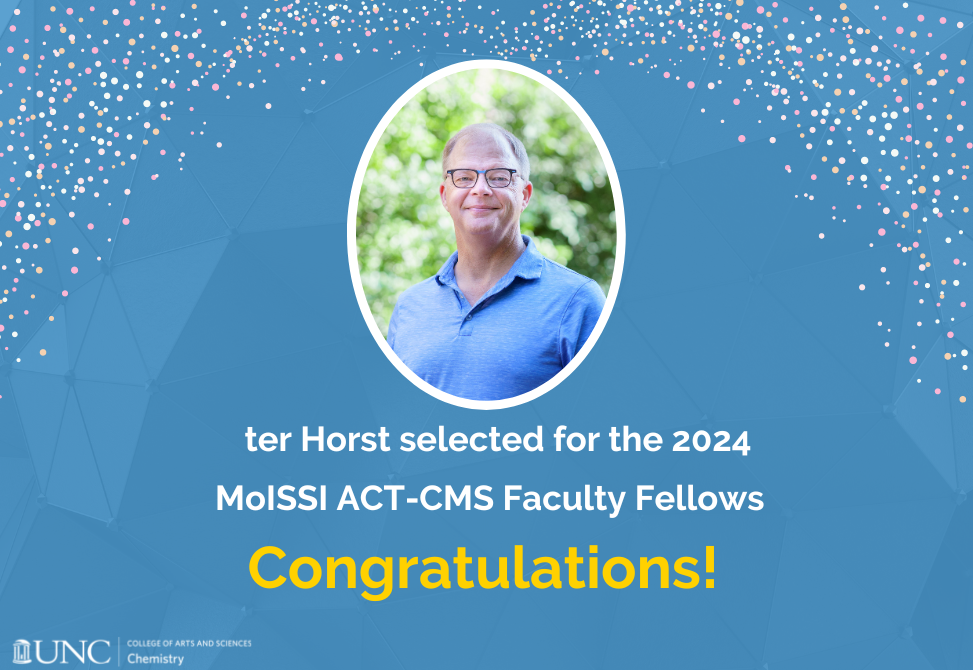May 28, 2024 | By UNC Chemistry Communication
Marc ter Horst, UNC Chapel Hill Research Professor in the Department of Chemistry’s NMR Lab, has been selected to be part of the first Molecular Sciences Software Institute (MolSSI) Accelerating Curricular Transformation in the Computational Molecular Sciences (ACT-CMS) Faculty Fellowship. 2024 marks the first class of ten faculty members who will receive this fellowship.
The purpose of the ACT-CMS is to transform science curricula by accelerating the integration of programming and computation into existing molecular science courses through faculty training and the development of open and reusable curricular modules. In order to achieve this, MolSSI will provide faculty with the training and resources needed to integrate programming and computation into their existing courses. ACT-CMS is generously funded by the National Science Foundation Training-based Workforce Development for Advanced Cyberinfrastructure program.
Those educators who have been selected for this award will be working with the MolSSI for the next two years to integrate programming, data competency, and computing into their curriculum. The 2024 inaugural group of ACT-CMS Fellows will be spending a week with MolSSI in June of 2024 for their Curriculum Development Bootcamp.
As a result of this program, each Faculty Fellow will develop discipline-specific modules for use in molecular sciences classrooms integrating computation and programming. These materials will all be released under permissive licenses to allow broad adoption among other educators. Building on existing MolSSI Education material, ACT-CMS will thus provide a number of foundational modules for use in science curricula.
Dr. ter Horst will work with MolSSI to integrate computational resources into the Advanced Organic Chemistry Course, a graduate level course with a focus on NMR Spectroscopy. Students will utilize Python programming resources on campus to apply computational tools in two ways. First to determine optimum parameters for obtaining quantitative NMR Spectra and second to predict chemical structures based on a library of chemical shifts. By augmenting an existing machine learning method of predicting structure dependent NMR chemical shifts, students will be able to improve on the model’s predictive capabilities for a specific class of molecules.
More information about MolSSI can be learned at their website, and information about ACT-CMS specifically can be found at this page.
Congratulations Professor ter Horst for this deserved recognition, and good luck at the bootcamp!


